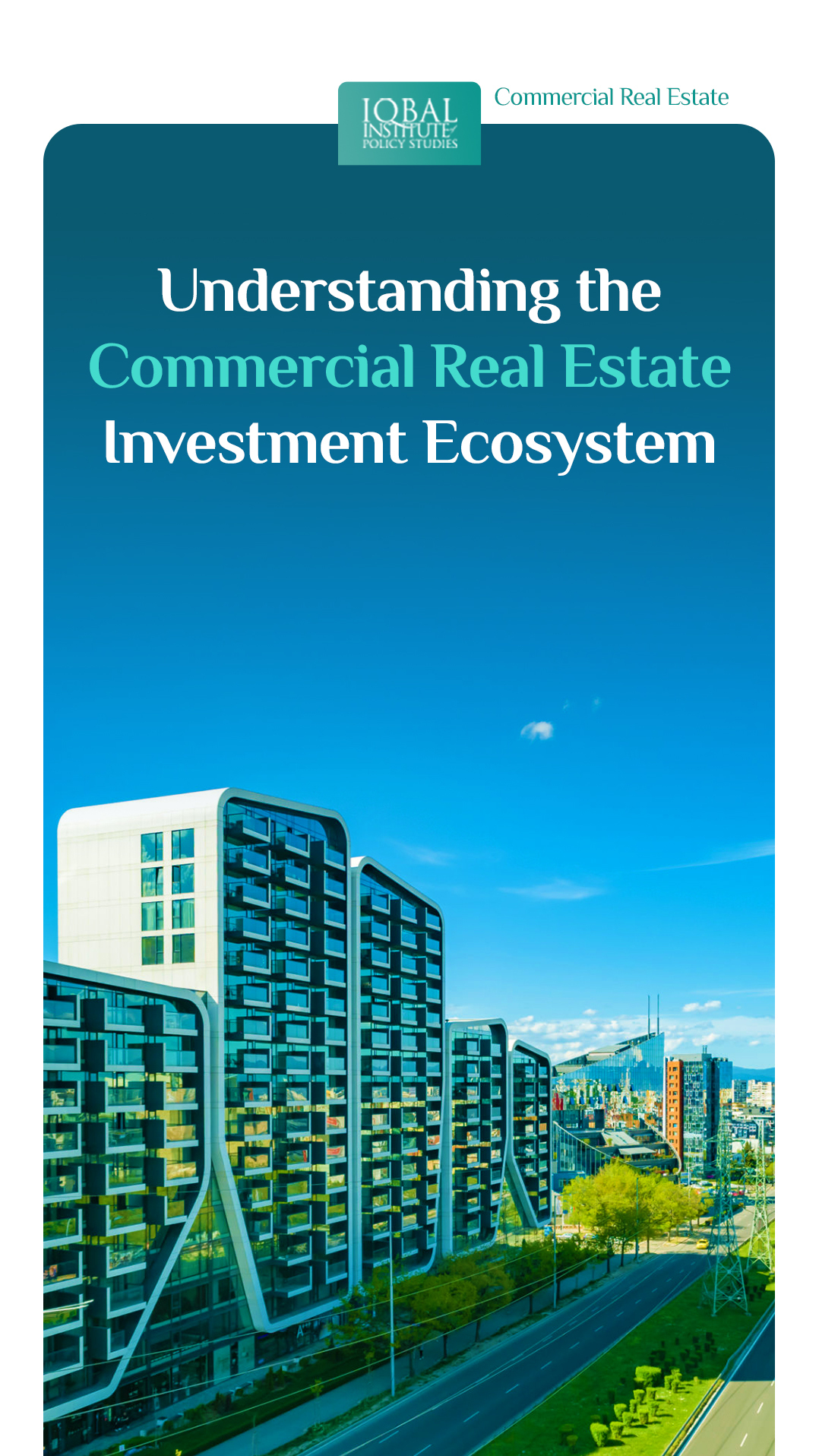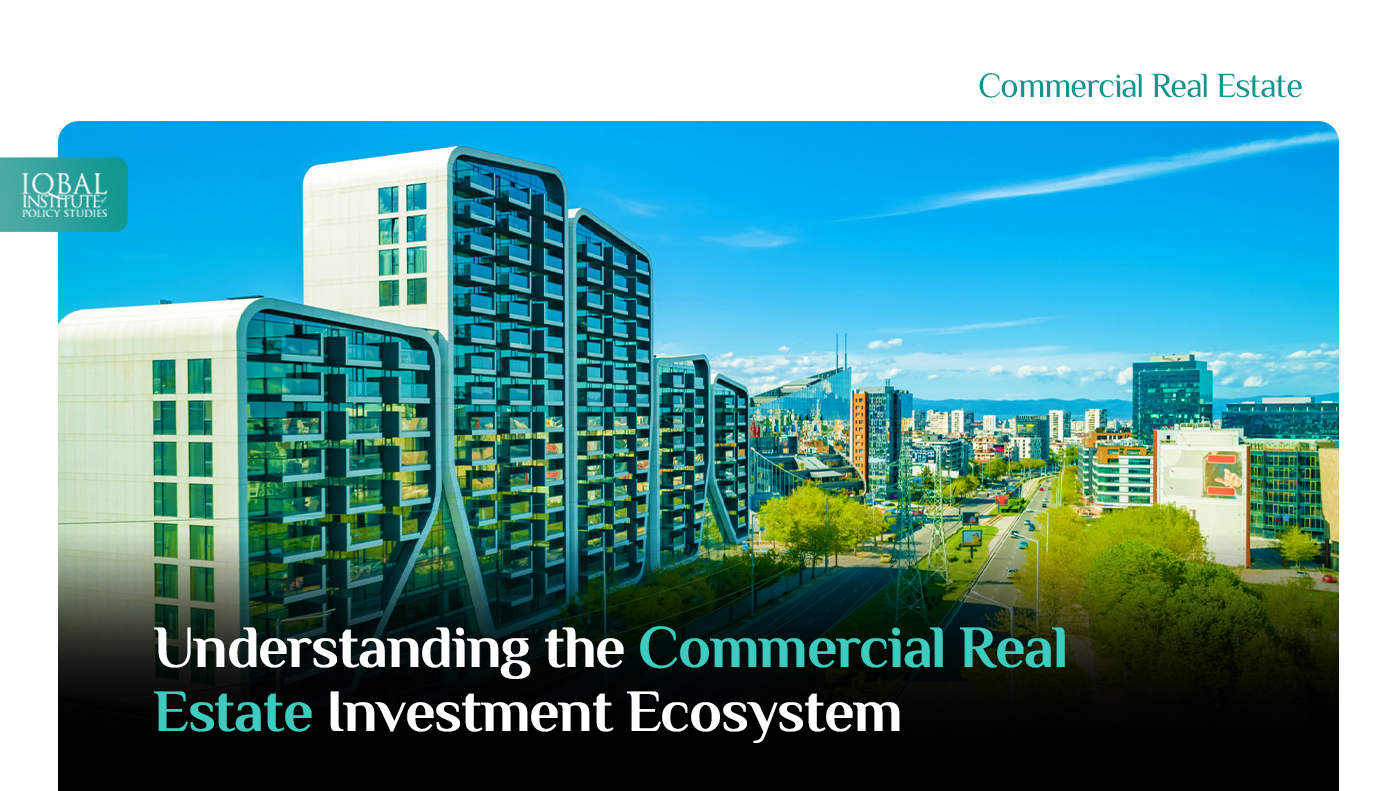Real estate offers safe and lucrative investment options for the masses. But sometimes, it can be a bit challenging for those unfamiliar with the industry. People usually get confused about real estate investing. What property type is suitable for investment, which area of the real estate sector is performing the best, and investing in which sector can give high returns? For investors, particularly beginners, it is mandatory to know all these queries so they can make well-informed decisions about investing their hard-earned capital.
Fortunately, several options are available regarding investment in the real estate market. One of the most common real estate investment areas is a commercial property which is usually used for business purposes and offers higher income yields.
If you are considering investing in commercial real estate, continue reading to understand the commercial real estate investment ecosystem properly.
What is Commercial Real Estate?
Commercial real estate, commonly called commercial property, investment property, or income property generally used solely for business-related purposes. Commercial real estate comes in a variety of forms, anything from an office building to a shopping mall or even a restaurant or warehouse. It has a broad category, including single storefronts to huge shopping malls. Individuals, companies, and corporate interests can make money from these properties by leasing them or holding and reselling them. Investing in commercial real estate holds numerous benefits. It can achieve higher profits and better returns on investment over a shorter period.

Classification of Commercial Real Estate
Commercial real estate comprises one of the primary categories of real estate property. These are non-residential properties that generate income. Typically, commercial real estate is classified into four major types:
-
Office Space
This type is based on single-tenant properties, small professional office buildings, downtown skyscrapers, and everything in between.
-
Industrial Use
Large R&D facilities, warehouses, cold storage, and distribution centres.
-
Multifamily Rental
It includes high-rise apartment buildings that serve as residences for tenants and are classified as a commercial activity for landlords.
-
Retail
It includes single-tenant retail buildings, inline multi-tenant retail, small neighbourhood shopping centres, larger community centres, grocery stores, health care stores, themed shopping malls, convenience stores, showrooms etc.

Investment in Commercial Real Estate (CRE)
Investing in commercial real estate is potentially lucrative and safe compared to the stock market’s volatility. In commercial real estate, investors can make money through rental income or property appreciation when selling. An investor can invest their capital through two channels, direct or indirect.
Direct Investment
Investors can make direct investments by purchasing a physical asset and can become a landlord. Using a direct investment method is suitable for those who either have a significant amount of knowledge about the market or can hire firms or experts that do. CRE properties are high-risk but high-reward real estate investments. If an investor wants to be a high-net-worth individual, it requires considerable investment. The ideal property for CRE investment is in an area with low CRE supply and high demand, giving favourable rental rates. Furthermore, the strength of the area’s local economy greatly impacts the value of the CRE purchase.
Indirect Investment
On the contrary, investors can make indirect investments in the commercial real estate market through either ownership of various market securities like Real Estate Investment Trusts (REITs) or Exchange-Traded Funds (ETFs) that invest in commercial stocks or make investments in companies that serve the commercial real estate market, such as banks and Realtors.
Potential Advantages of CRE Investment
Investing in commercial real estate offers numerous benefits to the investors; some of them are listed below:
-
Higher Income Yields
One of the major sources of income generation in CRE is rental income. The rent of commercial properties increases annually, giving high rental yields to investors. According to Mortgage Choice, rental yield is the money an investor makes on a commercial property which is measured by the gap between your total costs and your income from renting out your property. A higher rental yield means higher returns on the property.
-
Long Term Leases
Commercial leases are considerably longer than household leases. Generally, a leasing contract for commercial properties is held for six to twelve years, providing consistent and predictable cash flow over time. Longer leases of commercial properties allow the rent to increase annually, thus giving a high return on investment as the lease progresses.
-
Eligible Tenants
In renting out a residential property like a single-family home, it becomes difficult for the investor to locate eligible tenants who will maintain the property in good condition. On the contrary, CRE properties are generally rented out to companies, corporations, or similar entities. Therefore, they are more likely to maintain the property in good shape.
-
Capital Appreciation
Commercial properties are generally well-maintained and up to date, offering high capital appreciation. It provides appreciation and stable returns even in times of economic uncertainty.

Is Commercial Real Estate Better Than Residential Real Estate?
Generally, investment depends on two important factors, the risks involved and the goals. Sometimes, it gets difficult for investors to choose between commercial and residential real estate for investing purposes. It has been observed that real estate investors generally suggest commercial estate as the best investment option.
Commercial vs Residential Real Estate
-
Generally, commercial real estate is less risky as it always has a steady cash flow due to the rock-solid lease terms in place for tenants. In contrast, acquiring a residential property can be a bit risky as those tend to have unstable cash flow with the potential for drastic changes in market demand.
-
In the real estate segment, residential real estate was the one that was adversely affected during the spread of the pandemic. Furthermore, any drop in economic activity in any area first affects residential tenants as they always want to cut their losses without a concrete, long-term lease agreement.
If you know a market sufficiently well and have local contacts, investing in the residential estate for a relatively short period will be good. For commercial properties, it is good to have long-term goals, like five years or more. That way, the returns generated will make more sense, and passive income frees up your time for looking at other investment avenues.

Conclusion
Most investors do not understand the commercial real estate investment ecosystem properly. Investing in commercial properties is longer than investing in residential real estate since it follows strict laws and regulations and requires high maintenance costs. But it generates better quality tenants, higher profits on investments, longer lease terms, and a faster increase in value. Therefore, investors will benefit more when they invest in commercial real estate.



Leave a Reply